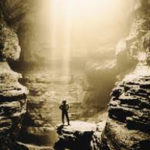We'd love to have you access this content. It's in our members-only area, but you're in luck: becoming a member is easy and it's free.
Already a Member?
Not a Member Yet?
I enjoy many forms of physical exercise, from climbing mountains, to backpacking along trails, to bicycling, and even swimming. But mostly nowadays I just go hiking, sometimes with my grandchildren and partner, but often alone. Working the muscles of my body is good for me and helps keep my joints working. I feel better after […]
I enjoy many forms of physical exercise, from climbing mountains, to backpacking along trails, to bicycling, and even swimming. But mostly nowadays I just go hiking, sometimes with my grandchildren and partner, but often alone. Working the muscles of my body is good for me and helps keep my joints working. I feel better after a long walk. Can the same be said of mining memoir depths?
Well, my mental muscles do feel better after a good writing workout. I’ve been writing diaries since I was very young, and I keep boxes of them wherever I’m living at the moment. I draw on them a great deal in my memoir writing. They offer a panoramic view of my life.
I’ve been scribbling “Morning Pages” ever since Julia Cameron’s Sound of Paper came out. Every day along with my morning writing I include entries in my gratitude journal as well as ideas for my recovery blog. [Free Membership required to read more. See below. ]
This post is one of over 500 informative, well-written articles we have made available to you on this site.
We’ve contributed to your writing success; now we ask you to contribute to the expansion of the memoir conversation.
By reposting this article on your blog or website or reposting on your favorite social media, you will inform your fellow memoir writers of the programs and services—many for free like the blogs—that are available at TheMemoirNetwork.com.
Thanks for your generosity. You rock.


Marilea, thank you for this enlightening post about how memoir writing can be transformational. I have experienced the same clarity through writing. The story that needs to be told seems to unfold and reveal itself as long as I show up and write.
That’s so true, Kathy. Sometimes all our planning and intention fall away as we discover new insights to explore. Sometimes our writing leads us to places we had never imagined. But we were better for it.
Marilea, I love this article. You describe my experience perfectly. For me, writing for self-discovery is a spiritual practice. And writing my memoir was transformative. Thank you for putting words to this awe-inspiring process.
Linda, thank you. We are certainly on the same page when it comes to this genre. And aren’t we fortunate to have found a way to heal and grow through our writing?! I feel incredibly blessed to be where I am today. It’s been a long haul.